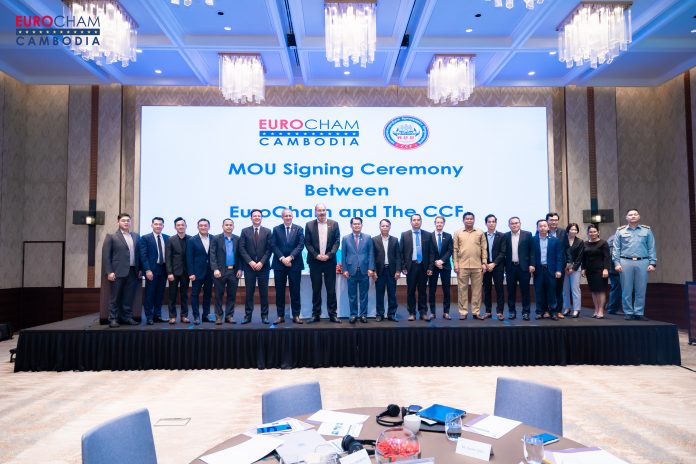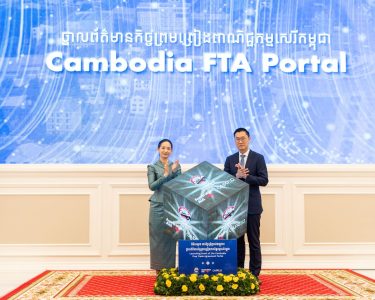Aaron Woolner
The trade in illicit and counterfeit goods is a growing problem worldwide but Cambodia’s 2019 Consumer Protection Law is enabling the government to tackle the issue more effectively, according to H.E Phan Oun who heads up the Consumer Protection, Competition and Fraud Repression (CCF) arm of the Ministry of Commerce.
H.E. Phan Oun was speaking at The Counter-Counterfeit and Illicit Trade Forum, hosted by the European Chamber of Commerce (Eurocham) on Tuesday, where an M.o.U was signed between the two bodies intended to promote greater understanding on the issue and discover potential solutions.
Governments are losing billions
The CCF director general, said that negative effects from the trade in illicit goods ranged from governments losing tax revenue to public health issues related to imitation alcohol or pharmaceuticals.
“Globally governments are losing billions in tax revenues to this issue, while legitimate businesses are undermined and consumers are exposed to unregulated products. Illicit trade robs the global economies around $2.2 trillion and they crowd out legitimate economic activities,” he said.
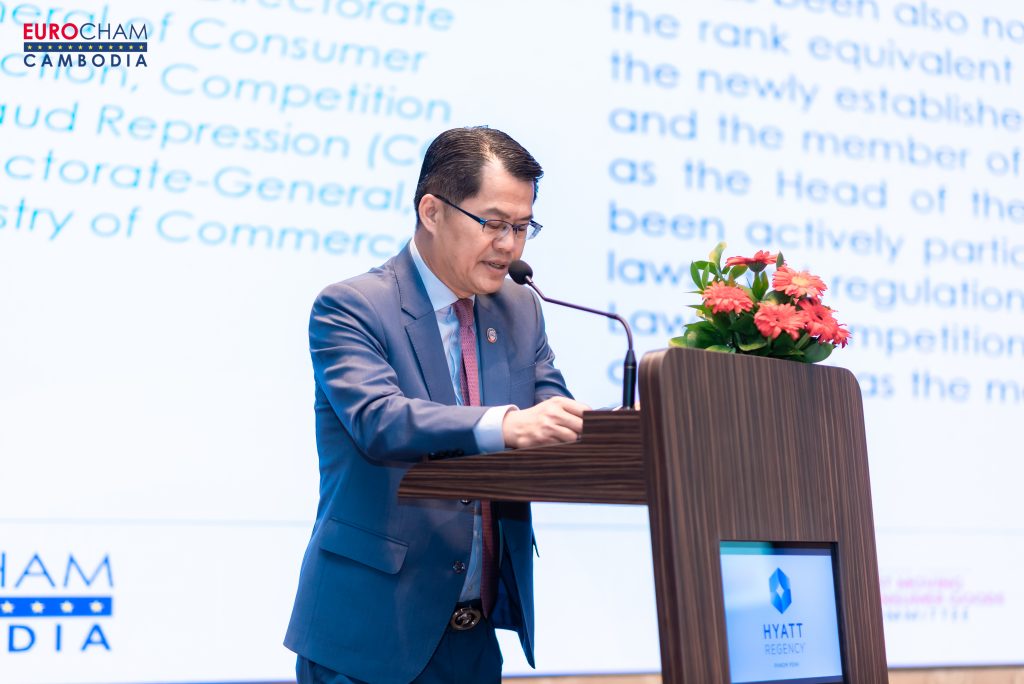
He said the Consumer Protection Law meant Cambodia was the latest country in ASEAN to enact such legislation and that it had already yielded results with the seizure of nearly 20 tonnes of illicit cigarettes, household appliances and cosmetic electrical products since. H.E Phan Oun said the Cambodian government intended to build on this success with further rules and regulations.
Read more: Fighting the illicit alcohol trade in Cambodia and ASEAN
“The topic of consumer protection has attracted the attention of the Royal Government of Cambodia which wants to promote awareness of this issue among the public, and develop laws and regulations supporting the consumer protection initiative already carried out by the Minister of Commerce.
Private sector utilizing technology
The private sector is also working in initiatives to combat fraudulent goods, with Mr Tan Ser Chhay, president of the Wine Spirit Beer Importer Associations (WSIBIDA), telling the audience that his firm Attwood Import Export had teamed up with blockchain specialists VEChain on a security sticker which should give consumers confidence that the bottle of imported spirits they are drinking is real.
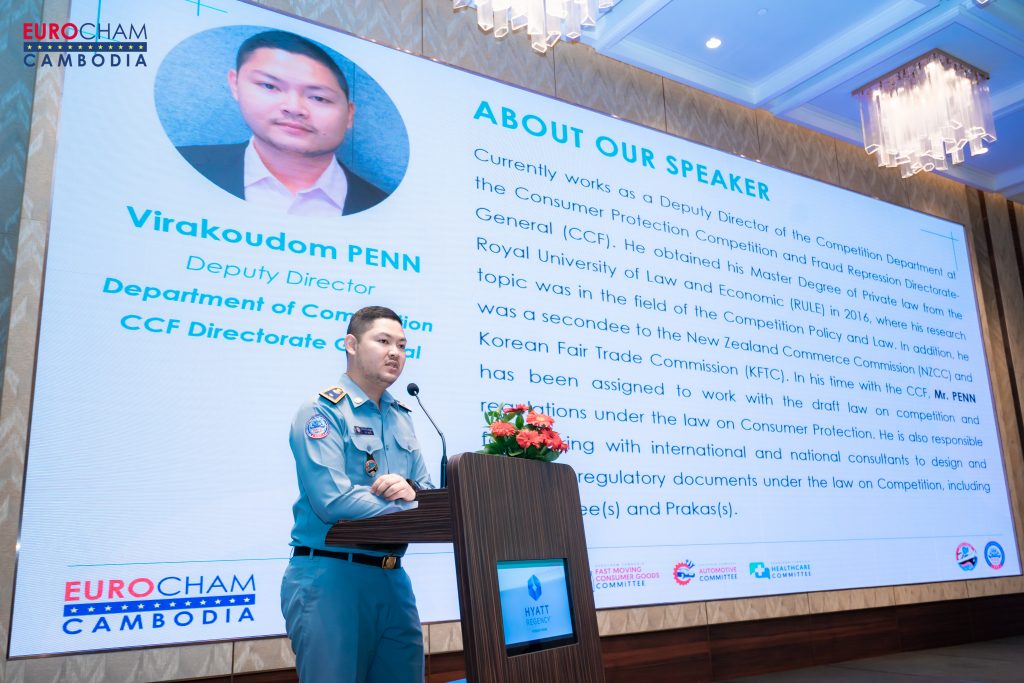
Saying that QR Codes were easily fakeable, Mr Tan Ser Chhay instead pointed to the public, and immutable nature, of blockchain technology as providing a higher degree of consumer certainty than alternative technologies.
“People suggest that we use QR codes but these can easily be counterfeited whereas blockchain enables us to register products and trace where they are sold. And this information cannot then be altered. So technology definitely does help in dealing with this issue.”
No silver bullet to stop illicit trade
Fellow panellist Mr Rodney Van Dorren, the Asia Pac head illicit trade prevention at US tobacco firm Philip Morris, owner of the iconic Marlboro cigarette brand, said that the complex nature of the trade in illicit goods meant that a number of different approaches were needed in order to tackle a sector including public and private co-operation, as well as at a state level.
“The fundamental issue across the whole illicit environment is if it was an easy problem to fix, then you wouldn’t have a problem. There’s no silver bullet that will change things instantly but some things seem to be most effective; the acknowledgement of the problem between the public and private sector, And an alignment with regards to roles and responsibilities on what that collaboration should look like,” he said.
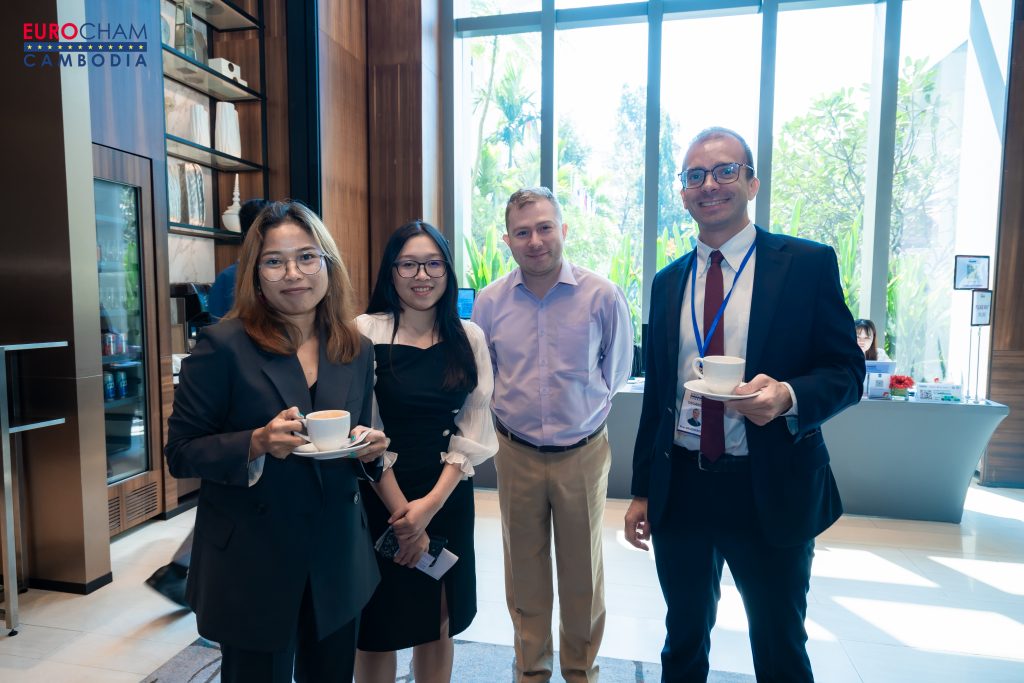
“So I’m very in favour of an approach where the public and private have to work together. Because each of us knows something substantial about the issue. But I also think public to public is important. Government to government. Because the problem needs to be tackled in multiple ways,” he added.
Mr Van Dorren was also positive about the potential for technology to tackle fraud, saying that artificial intelligence was proving a useful tool in spotting odd ordering patterns that could indicate illicit activity.
EuroCham and CCF ink partnership
EuroCham plans on working closely with the CCF in future, and the forum also provided the occasion for the two sides to sign a Memorandum of Understanding to collaborate on shared interests in the future.
EuroCham Executive Director Tom Hesketh said the MOU would pave the road for the two sides to work on protecting consumers, levelling the playing field for businesses, and helping establish regulations to prevent illicit trade. “With the MOU, we are particularly honoured to be invited to be a consultation partner to assist the CCF in drafting the policies, strategies, and new regulations related to consumer protection and competition in Cambodia”.
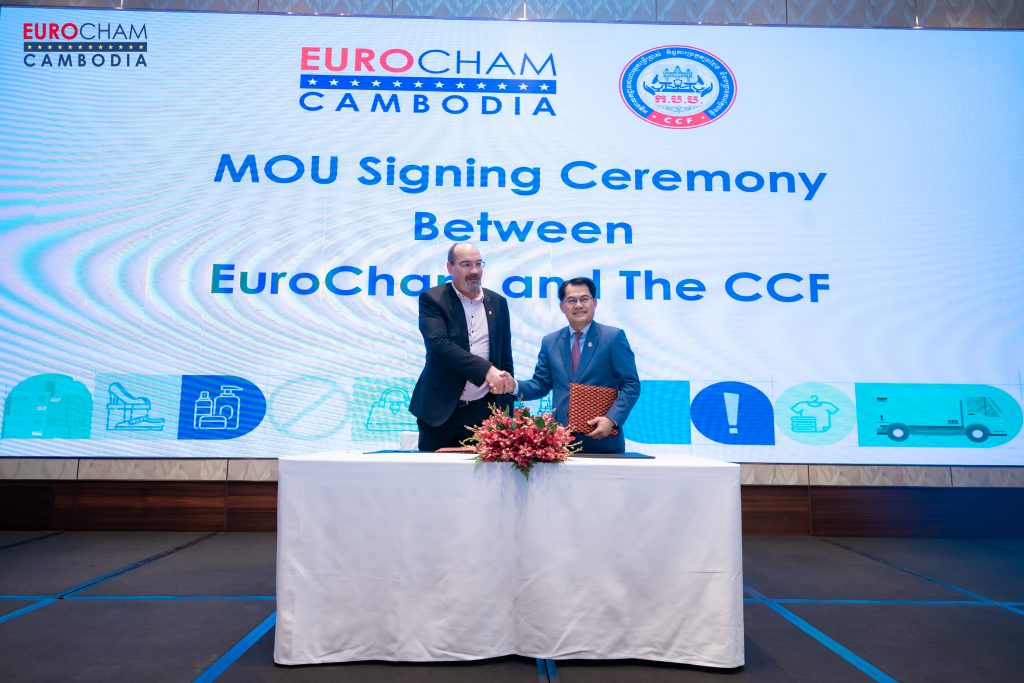
As noted by other speakers at the forum, Hesketh said reducing the impact of counterfeit goods in the Kingdom would help attract even more investment to the Kingdom in the coming years.
The MOU contained high level commitments by both parties to collaborate on the following topics:
- Consumer Protection, Competition and other relevant areas under the mandate of
- CCF Directorate-General;
- Fair Trade Promotion, and the exploration of relevant activities for the promotion of
- Fair Trade;
- Raising awareness of new regulations and developments related to the Law on
- Competition, the Law on Consumer Protection, and other relevant areas;
- Promoting the quality and safety of products in Cambodia;
- Ensuring a fair competition environment of doing business in Cambodia;
- Ensuring the compliance of the regulatory requirements related to the quality and safety of products and services.


